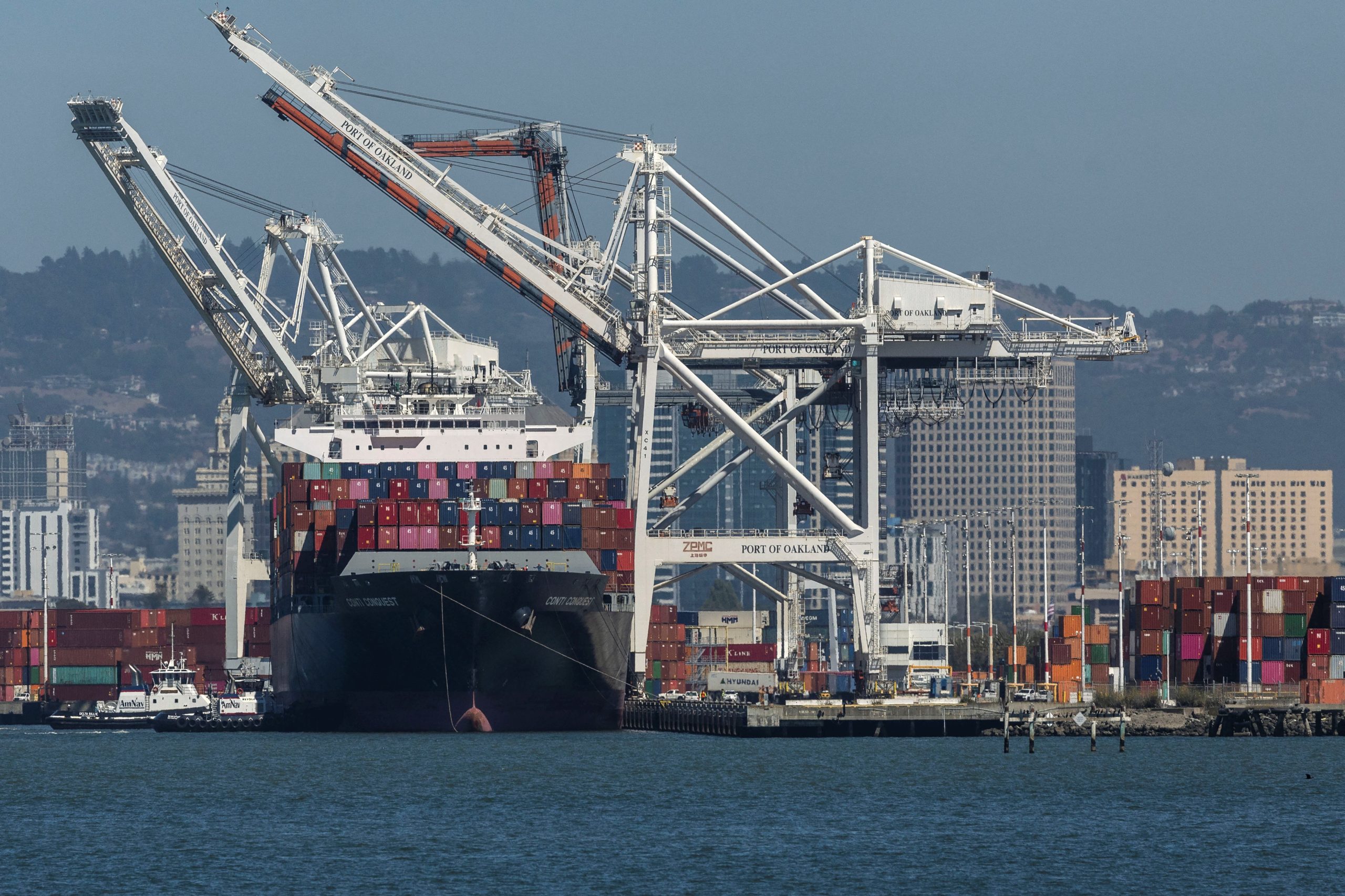
[elfsight_social_share_buttons id=”1″]
Independent truckers who have been protesting at California’s busy Oakland seaport over the past week against a new state law known as the “gig-worker” law took a break on Saturday, when the port business slowed to a crawl.
But some truckers said protests may resume on Monday when normal port traffic is scheduled.
“Protests are scheduled for Monday to Friday, as the port also does not have any major operations scheduled through the weekend,” Bill Aboudi, owner of a trucking company and supporter of the protests, told Reuters.
The Port of Oakland’s four marine terminals do not have scheduled operating hours on Saturday and the truck gates, too remain shut, Oakland Port’s spokesperson confirmed to Reuters.
However, Oakland Port spokesperson also said operation of the terminals is leased out to companies that schedule their operations and may have been carrying out some shipping operations on Saturday morning.
Oakland International Container Terminal (OICT) is the largest, handling about 70% of the port’s cargo. It is operated by SSA Marine, who did not immediately respond to Reuters’ request for comment, outside of business hours.
“If the protests will resume or not on Monday, that shall be determined on Monday only as the truckers are in active talks with the concerned authorities,” Aboudi said.
Operations at the Northern California port ground to a near standstill last week after protesters used pickets and tractor-trailers to block terminal gates. Work on ships and docks slowed after cargo flows stopped and hundreds of International Longshore and Warehouse Union (ILWU) members declined to cross blockade lines for safety reasons.
The Port of Oakland is a key hub for California’s $20 billion-plus agriculture exports, which include almonds, dairy products and wine. The eighth-busiest U.S. container seaport, which also handles imports like coffee, electronics and manhole covers, was already working to clear a pandemic-fueled cargo backup before the trucker protests began.
Independent truck drivers are opposed to California’s labor law formally known as AB5. It would make it harder for companies to classify workers as independent contractors.
Truckers say the law will require them to spend thousands of dollars on insurance and equipment rentals like chassis to remain independent.
“AB5 is everything that obstructs a small truck business owner’s ambition to live the ‘American Dream,'” Aboudi said.
Copyright 2022 Thomson/Reuters
